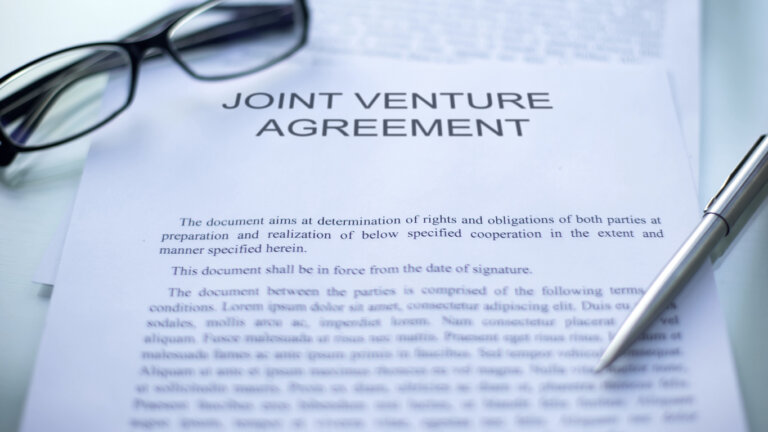Doing business internationally is a great way to expand your customer base. An excellent way to accomplish this is through a global joint venture with one or more foreign entities. However, while these strategic alliances present a lot of opportunities for U.S. businesses, they can be highly problematic if they are not structured appropriately. The key when entering into a joint venture is to make sure to have the necessary safeguards in place to protect you and your business. In the following, we will explore how to start a joint venture, and why you should have an experienced attorney to consult with early in the process.
What is a global joint venture?
A joint venture is any entity formed by two or more businesses to accomplish a specific goal. The businesses will combine their resources in a way dictated in a joint venture agreement that specifies the type of entity, and how decisions are made, profits are shared, and expenses are paid for. On the international scene, a global joint venture will often involve an American business and a local entity in a foreign country. The goal is to help the American business penetrate a local market with the hope that the foreign entity will have a grasp of the local rules, regulations, and customs that will make entry easier.
What steps do you need to take to set up a global joint venture?
The first step is to identify the markets that you want to go into. You need to consider whether the product or service your company delivers will work in another country. After you’ve identified the country, you have to locate local businesses to partner with in your joint venture. This means finding ones that have a reputation for hard work and fair dealing. The last thing you want to have to happen is to get into a deal with a foreign entity only to find out that they are dishonest or corrupt. This could harm your firm’s reputation by being involved with the other business.
This leads to the next stage, which is due diligence. You need to review all of the information on the other entities to make sure there are no red flags about them. This will also involve making sure that your business does not violate any laws, rules, or regulations of the target market country.
Once you have completed due diligence to your satisfaction, you will need to have your team negotiate a joint venture agreement with the foreign entity. This will govern how operations are handled. It is vital to craft an agreement that will safeguard you and your business from any problems that might arise with the joint venture entity. This is also why it is crucial to choose the right kind of entity to conduct the business. This will determine if you can exercise the proper amount of control over the global joint venture so that it operates as you see fit.
What can you do to best protect yourself?
There are a number of things you can do to protect your company when you enter into a global joint venture. First, if you are uncomfortable with the due diligence, don’t go forward with the local entity. Any red flags can be sure signs of trouble down the road.
If the due diligence is satisfactory, you are still going to want to take steps to protect yourself in the joint venture agreement and the choice of entity. The agreement should be drafted in a way to make clear which entity is exerting the greatest amount of control. If this is not clear, the local entity could countermand many of your critical instructions. You should also choose a type of entity with limited liability for the investors. This means that the only thing you are risking is the assets within the joint venture entity, and you are shielded from any liability that may arise.
Clarity is also important in the joint venture agreement. The general rule is that any ambiguity is held against the drafting party. Also, a lack of clarity can give rise to operational and decision-making issues down the road.
Finally, you are going to want to have a strong choice of law and venue clause. Unfortunately, many global joint ventures don’t always work out and can lead to litigation. If you can, try to have the parties agree to dispute resolution in your home state in the United States, with the contract governed by your state’s laws as well. This will put you in a stronger position since the foreign entity will have to travel to the United States to litigate any dispute.
Contact Our Firm for Assistance with Global Joint Ventures
Entering into a global joint venture can be a very risky proposition. Call us today so we can assist you with all of your company’s legal needs when you are looking to do transnational business.


